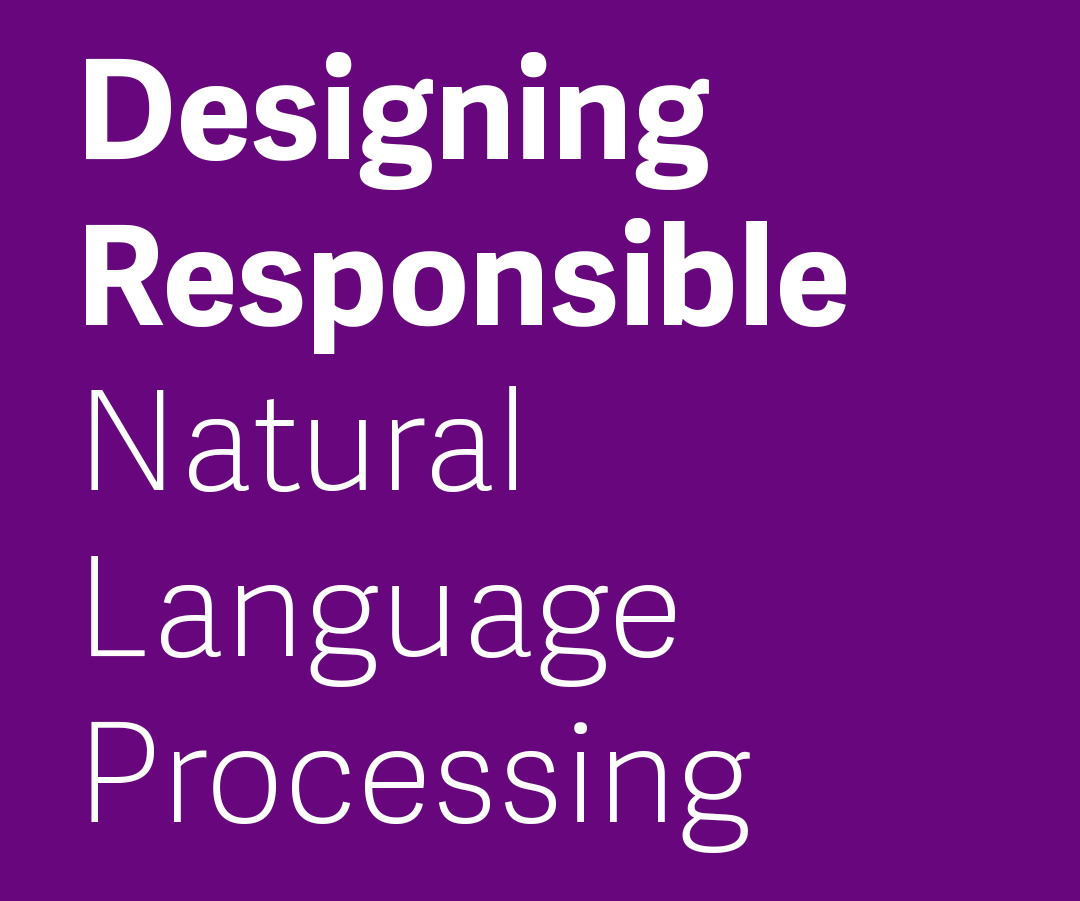CDT courses
The structure of our PhD with integrated studies requires all students to study taught courses whilst concurrently completing the research elements required by the traditional PhD programme. The programme is designed to be maximally flexible in the way in which credits are accumulated, however, all students must successfully complete a total of 180 taught credits over the first two years, in addition to the equivalent of three years of PhD research, spread over the four years of programme. 110 of these credits will come from mandatory courses that all students take, with the remaining 70 credits for a variety of elective choices.
Below we outline the different courses students might take as part of the training programme:
Year 1 compulsory cohort-wide courses
Students will take three compulsory courses in Year 1, supporting cohort-building and developing foundational understandings in conducting NLP research with a focus on in-the-world applications.
Researching Responsible and Trustworthy NLP (20 credits, year-long) will introduce foundational research skills that students can immediately put into practice. To start, the course will focus on analysing case studies of in-the-world NLP, teach project and time management skills, and introduce our approach to embedding Responsible AI through a PhD. The second half will focus on research methods, with an emphasis on evaluation techniques for application-oriented NLP research. The course will have strong peer-to-peer learning, embedding the
development of communication, presentation and writing skills. It will also include a “plan in a day” session developed as part of our previous CDTs, to help students with planning their PhD research, and to support you in creating a long-term vision and action plan for your work.
Applied Interdisciplinary Project (AIP) (20 credits, intensive block) will focus on applied interdisciplinary collaboration where teams of students respond to responsible NLP problem briefs developed by partners with supervisors. The course introduces students to principles and practices of interdisciplinary collaboration, followed by working in teams in a four-week intensive block.
Individual Exploratory Project (IEP) (60 credits, semester-long) will enable students to conduct a time-bound project as a start to their independent research and deliver a paper that will shape their PhD proposal. You will work with two supervisors from different disciplines (who may become part of your supervision team) and acquire training that complements your background expertise. The project might be standalone or serve as the basis for subsequent PhD research. IEP will broaden the methodological skillset of students, and help form relationships with supervisors that may join their PhD supervisor team.
Ethics, Data & AI electives. In addition to the bespoke courses above, students will choose at least 10 credits from a curated list of courses on the ethics of data and AI. The University of Edinburgh has a rich portfolio of PG courses on this topic, including courses that introduce more technical students to bias, fairness, privacy and AI ethics case studies (INFR11206) and the fundamentals of data ethics and applying this in practice (EFIE11027); to more advance courses on the history and politics of data (EFIE11044) and translating ethical values to technical practice (EFIE11169). Learning from these courses will feed into the Year 2 Case Studies in Responsible NLP course (see below).
Year 2 compulsory cohort-wide courses
In Year 2, students only have one compulsory course; the rest of their credits will be made up of foundational and specialist courses (see below).
Case Studies in Responsible NLP (10 credits) will focus on applying Responsible NLP principles in practice. The course will involve students teaching each other insights from their Y1 Ethics, Data & AI course(s), focusing on concepts of fairness, inclusivity, privacy, reliability, transparency and accountability. Students then build on this to evaluate a case study of an in-the world NLP project of a project partner. The case studies will draw out insights for the development and practical application of principles of Responsible NLP.
Year 1-3 foundational and specialist courses
Beyond compulsory courses, students will select further courses following an initial Training Needs Assessment (TNA). The TNA will identify with students (a) their alignment to the CDT Skills Domains, (b) their intended deep knowledge domain (where they wish to engage in more specialist training) and (c) domains to broaden their knowledge into (where they aspire to form more foundational training). For example, students with a strong computer science background may be guided to design, law or linguistics courses; students with strong design or HCI skills may be guided towards programming or law. We expect students will take more foundational courses in Year 1 and specialist courses in Years 2/3 with all 180 credits completed by Year 3 end. In Year 4, students will only pursue PhD research, and complete their thesis.
